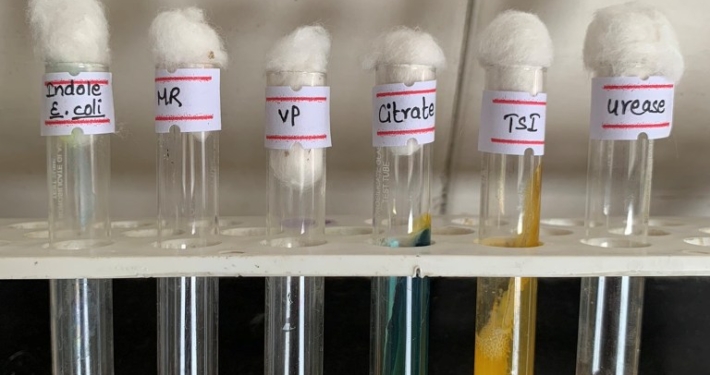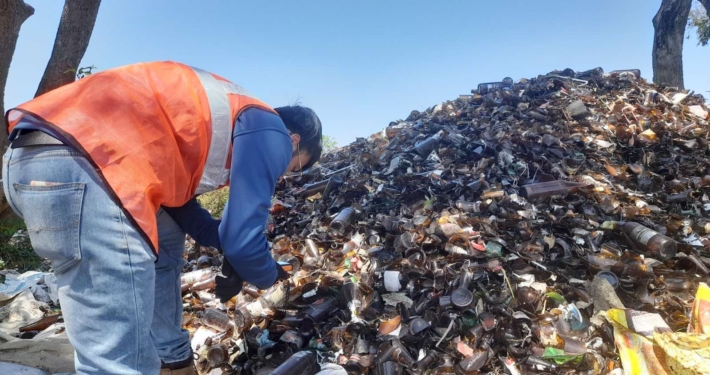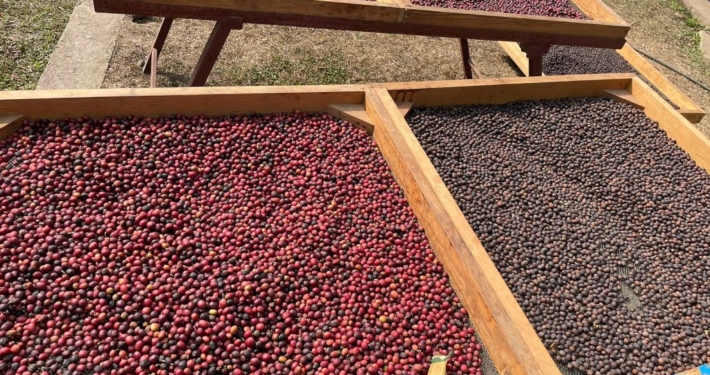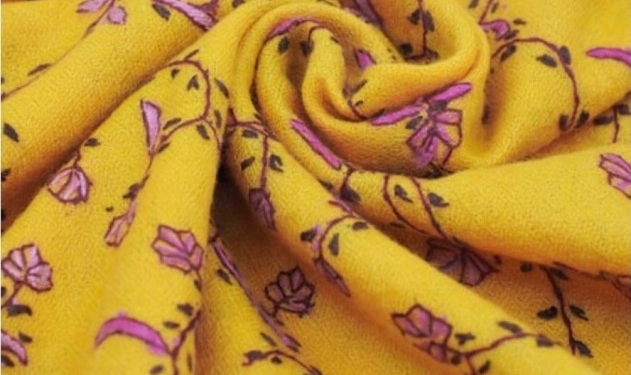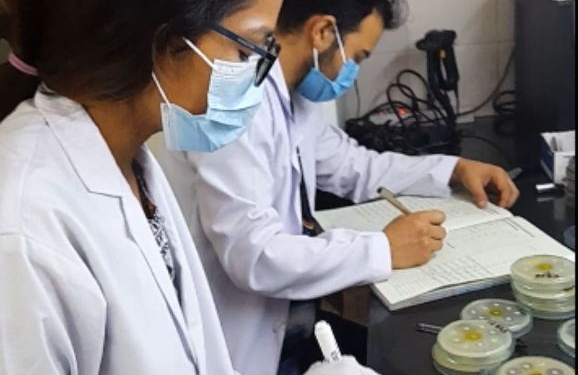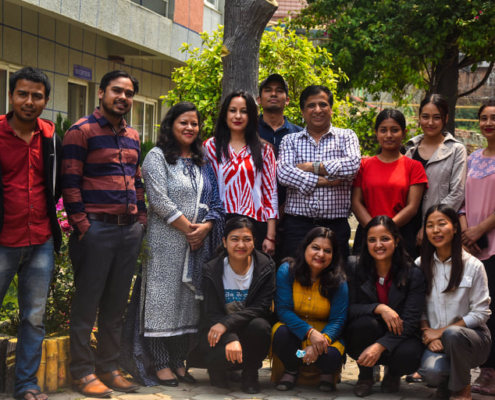Who we are ?
When sourcing from Nepal most of the importers are probable to variety of risks which can be from quality issues, quantity discrepancies, delayed shipment and concerns about social compliance of manufacturers. To make import easier and safer, IIQA is here to offer the most reliable and cost effective solutions for the wide range of products that is exported from Nepal.
Why IIQA as your quality assurance partner ?
- 10+ years of experience and dedicated team of inspectors
- Served more than 200 customers from America, Europe, Asia and Africa
- Own lab for testing the different parameters.
- Leading in the path of continual improvement.
- Committed to customer satisfaction.
How to work with us?
- Contact us for booking and provide us the details of your requirement.
- Based on the received booking details we contact your supplier to confirm the inspection date and inspection address.
- Inspection fee is collected and we perform the inspection as per the schedule.
- The inspection report will be delivered within the 24 hrs after inspection.
Product and Shipment Inspection in Nepal
IIQA provides independent inspection services from the start of the production to the final shipment of the products. Our team of qualified inspectors will ensure that the product are delivered as per their requirement and gives the real picture of how the productions look like.
Preproduction Inspection
This pre-production inspection takes place in the beginning of the production. It is to compare the first produced samples against product specifications and approved sample. This serves to detect and prevent problems, which if not identified, might cause customers and manufacturers huge losses. It will also provide some insights on the attention points for mass production .This process approach inspection will ensure that the final product are as per the expectation or the requirement.
During Production Inspection
During Production Inspection, the production is 15-30% completed or varies at certain stages. This inspection will help the buyer to ensure that the production is in progress, identify any defects or delays and the causes before so that corrective action is taken before the production of final product.
Final Random Inspection
This is performed when production is 100% finished and packing is 80% finished. This inspection helps to prevent the defected goods from being shipped. With this service, buyers are able to see whether the quality of the goods they will receive are as expected and determine whether to approve or reject the shipment or request rework actions.
Defect Sorting / Removal
This is usually recommended for high-value merchandise or high-risk orders. For this service, every and all piece is inspected from a certain angle (workmanship, sizes, etc. as requested) rather than randomly inspected. All defective goods identified are removed for rework or destroyed if possible in case they are re-packed into cartons.
What we do ?
We assess and verify the safety, conformity, and overall quality of a variety of products, such as felt, hemp, pashmina, cotton apparel, and other items which are frequently used in various industries, including fashion, automotive, interior design, and crafts. These goods are
thoroughly examined to make sure they adhere to the necessary standards and specifications. During the inspection process, qualified inspectors carefully examine the felt items for any flaws, inconsistencies, or deviations from the required quality. They assess factors such as the material composition, thickness, density, color, and overall appearance. This includes checking for uniformity in the texture and structure, as well as examining the edges and seams for any imperfections. Furthermore, third-party inspection also ensures that the items comply with relevant regulatory standards and industry guidelines. This involves verifying the absence of harmful substances or chemicals that could pose health risks to end-users. Inspectors may collect samples for laboratory analysis to confirm compliance with specific regulations, such as REACH (Registration, Evaluation, Authorization, and
Restriction of Chemicals) or the Consumer Product Safety Improvement Act (CPSIA).
Product Conformity
Assure the mass production is consistent with your requirements in design, dimension, and colour and material assortment
Quantity
Discover production status to avoid delays and verify the assortment
Workmanship
Identify quality defects and the defect rate for further action, e.g. rework
Data Measurements
Check the product’s dimensions and performance parameters
Function Tests
Find out if the product is working properly and correctly per the specifications
Packaging
Look into the packaging details to avoid wrong processing and damage
Labelling/Shipping Mark
Make sure all marks and labels are correct as requested
Factory Audit
We perform 2 kinds of factory audit
- Check the supplier or manufacturer’s general conditions, capability and its quality management system based on the guideline of ISO 9001:2015
- Promote ethical business by finding out whether they are socially, ethically, environmentally compliant or not as our initiative for Sustainable production of goods.
Simple Factory Audit
- Factory profile.
- Detailed staff count.
- Products currently produced.
- Observation of one production line (process steps, type and number of machines).
- Overview of the general organization (quality system, working environment, and equipment condition).
- Photos of the factory building, the production workshop, the warehouse, the office
- Photos of business license, export license, and any certificates.
Extensive Factory Audit
– Factory profile.
– Detailed staff count.
– Products currently produced.
– Observation of one production line (process steps, type and number of machines).
– Capacity evaluation for one line that makes a product close to yours.
– A brief audit of the quality system.
– A brief audit of social policy: child labour, forced labour, number of hours worked (with random interviews).
– A brief audit of safety policy: fire prevention, evacuation plan, chemical hazards, protective equipment.
– A quick assessment of environment policy: waste disposal, energy-efficient equipment.
– Photos of the factory building, the production workshop, the warehouse, the office area.
– Photos of business license, export license, and any certificates
Loading Inspection
Why Do You Need Container Loading Supervision?
- Ensure your products are transported in the appropriate conditions.
- Verify the right goods are loaded into the containers (no substitution).
- Guarantee you receive the total order quantity at the destination.
- Confirm your products are packaged and shipped as per conditions stated on the sales contract.
- Ensure safe transportation and delivery in a satisfactory condition
- Make sure that the products exported align with the rules and regulation of the destination countries.
- Ensure that the product doesn’t contain any hazardous, unwanted, illegal, harmful substances that has been banned by international law or by the importing country


